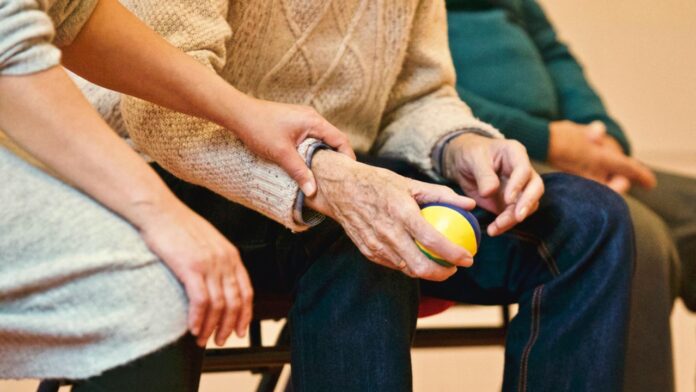
Two University of Iowa professors are teaming up to harness AI for the use of detecting physical abuse.
Aislinn Conrad, an associate professor of social work, and Karim Abdel-Malek, a professor of mechanical engineering and interim director of the Iowa Technology Institute, are developing a camera that uses AI and physics to detect real-time abuse in vulnerable populations.

Ms. Conrad, a former child welfare investigator and case manager in the foster care system, calls the invention “nanny cam on steroids.”
“Imagine a single camera that is running, but in the background AI is whirring,” she said. “The system is asleep until there is a jarring act that is leading to violence. The system comes awake and begins recording. If the AI determines violence is occurring, it sends an alert to caregivers so they can quickly respond.”
According to a release, Mr. Abdel-Malek has secured a patent for the algorithm behind the AI, which is an outgrowth of his virtual soldier research that has been utilized in the military for more than two decades.

“We are optimistic about creating a world where technology acts as a silent guardian, protecting the most vulnerable among us,” Mr. Abdel-Malek said. “Our goal is to develop a system that not only detects abuse but also prevents it, empowering individuals and communities to build a safer future.”
The camera’s algorithm analyzes the motion of the human body, whose speed and movement behavior helps the AI ascertain if certain conditions have been met to delineate the potential for violence and categorize the type of violent act.
As part of the ongoing process, Ms. Conrad and Mr. Abdel-Malek are seeking research subjects to act out different movements for AI to train it in discriminating between a variety of behaviors, such as punch versus kick, pinch versus slap, and playing versus fighting.
Noting that many abusers are not held accountable for a variety of reasons including lack of proof, the research partners hope the camera will facilitate rapid intervention and record evidence that is crucial in aiding prosecution.
“Our challenge is how do we mitigate abuse,” Ms. Conrad said. “Part of that is determining when it occurs. This is bridging a gap in the field in how to quickly respond to abuse and prove it is happening.”
To further progress, the professors are working to secure funding for their research with the hope that the technology will be commercially available by 2026.




